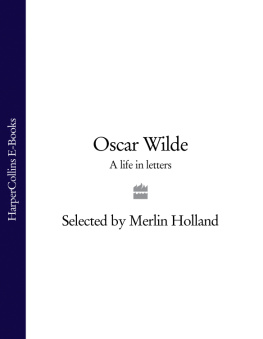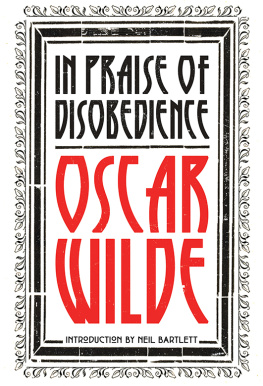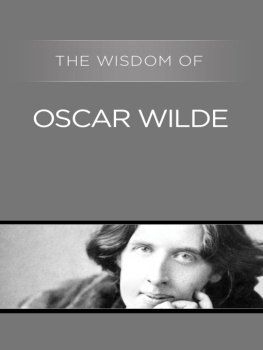Oscar Wilde - The Wit and Wisdom of Oscar Wilde
Here you can read online Oscar Wilde - The Wit and Wisdom of Oscar Wilde full text of the book (entire story) in english for free. Download pdf and epub, get meaning, cover and reviews about this ebook. year: 2014, publisher: Dover Publications, genre: Science. Description of the work, (preface) as well as reviews are available. Best literature library LitArk.com created for fans of good reading and offers a wide selection of genres:
Romance novel
Science fiction
Adventure
Detective
Science
History
Home and family
Prose
Art
Politics
Computer
Non-fiction
Religion
Business
Children
Humor
Choose a favorite category and find really read worthwhile books. Enjoy immersion in the world of imagination, feel the emotions of the characters or learn something new for yourself, make an fascinating discovery.
- Book:The Wit and Wisdom of Oscar Wilde
- Author:
- Publisher:Dover Publications
- Genre:
- Year:2014
- Rating:4 / 5
- Favourites:Add to favourites
- Your mark:
- 80
- 1
- 2
- 3
- 4
- 5
The Wit and Wisdom of Oscar Wilde: summary, description and annotation
We offer to read an annotation, description, summary or preface (depends on what the author of the book "The Wit and Wisdom of Oscar Wilde" wrote himself). If you haven't found the necessary information about the book — write in the comments, we will try to find it.
The Wit and Wisdom of Oscar Wilde — read online for free the complete book (whole text) full work
Below is the text of the book, divided by pages. System saving the place of the last page read, allows you to conveniently read the book "The Wit and Wisdom of Oscar Wilde" online for free, without having to search again every time where you left off. Put a bookmark, and you can go to the page where you finished reading at any time.
Font size:
Interval:
Bookmark:
The Wit and Wisdom of
Oscar Wilde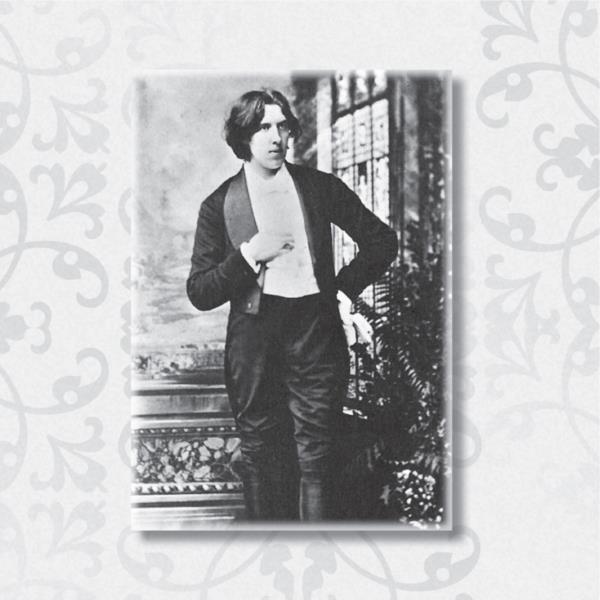
Oscar Wilde
BOB AND ODETTE BLAISDELL Dover Publications, Inc.
Mineola, New YorkCopyright Copyright 2012 by Dover Publications, Inc. All rights reserved. Bibliographical NoteThe Wit and Wisdom of Oscar Wilde is a new work, first published by Dover Publications, Inc., in 2012. Library of Congress Cataloging-in-Publication Data Wilde, Oscar, 18541900. The wit and wisdom of Oscar Wilde / Oscar Wilde; selected and edited by Bob and Odette Blaisdell. cm. cm.
Includes bibliographical references. eISBN-13: 978-0-486-16842-5 1. Wilde, Oscar, 18541900Quotations. I. Blaisdell, Robert. II.
Blaisdell, Odette. III. Title. PR5812.B54 2012
828.809dc22 2010048401 Manufactured in the United States by Courier Corporation
48092501
www.doverpublications.com
William Wilde. After starring at Trinity College, Dublin, in Classics, he won a scholarship to Oxford in 1874. A genius who fairly ranked himself as a genius, he published poems and plays, toured and lectured, wrote stories and the novel The Picture of Dorian Gray (1890), before hitting his full stride in 1892 with his comedy Lady Windermeres Fan, followed shortly after by A Woman of No Importance, An Ideal Husband, and his and perhaps English literatures funniest play, The Importance of Being Earnest (1895). Although he married in 1884 and fathered two boys, whom he adored, he was homosexual, and sometimes quite openly and proudly so, in spite of the dangers and disgrace any public revelation of it in London would mean at the time. His devotion to the selfish young Lord Alfred Douglas (Bosie, as Wilde called him), led him into a hopeless lawsuit for libel against Douglass father, the Marquis of Queensbury. The disastrous result of this was that Wilde himself was arrested for committing acts of gross indecency with other male persons and imprisoned for two years.
His wife divorced him and he lost any legal connection to his children. After his release from prison in 1897, he left England for France. Always bad with money and now at a loss for writing, he struggled to make ends meet and lived on the generosity of friends. He died in 1900, from complications related, so argues his biographer Richard Ellmann, to syphilis. In order to have a fresh appreciation of Wildes wonderful wit and wisdom, my daughter Odette and I have harvested the quotations not from previous quotation collections but from the primary and secondary sources listed at the end of this book. Wilde composed (and thought and spoke) on the look-out for epigrammatic statements.
When he was witty, he was very witty; even when he was not much in the mood he was witty. (We could have quoted everything but the stage-directions from The Importance of Being Earnest. Everybody is funny.) In the comedies before The Importance of Being Earnest, there are usually two or three designated wit-makers. Discounting the poetry and childrens stories, the wit is practically the work: wit delighting in its own play; wit for wits sake. In the lone novel of his career, The Picture of Dorian Gray, the goading Lord Henry cannot seem to help himself from delivering bon mot after bon mot. Word-play and paradoxical summation was a compulsion for Wilde.
In one of his early plays, Vera, a character remarks of another: He would stab his best friend for the sake of writing an epigram on his tombstone. (In The Picture of Dorian Gray, Dorian remarks wonderingly at Lord Henry: You would sacrifice anybody, Harry, for the sake of an epigram.) On the other hand, in spite of his delight in the keen put-down, Wilde was a devoted and kind friend and man. The crashing down of his sensational career was a brutal shock; he reflected during his imprisonment in 1897: I want to get to the point when I shall be able to say, quite simply and without affectation, that the two great turning-points of my life were when my father sent me to Oxford, and when society sent me to prison. Prison refined and revealed some of the wisdom he was previously inclined to mock in himself and others. He was always determinedly surprising himself into new discoveries about what he really believed and felt. The source cited for a few of the quotations may surprise those acquainted with Wildes words; Wilde, having found just the right sparkle to an observation, sometimes repeated himself: Men marry because they are tired; women, because they are curious: both are disappointed.
Lord Henry, The Picture of Dorian Gray, (1890) Men marry because they are tired; women because they are curious. Both are disappointed. Lord Illingworth, A Woman of No Importance,
Act 3 (1893) Or he kept refining himself: Moderation is a fatal thing. Enough is as bad as a meal. More than enough is as good as a feast. Lord Henry, The Picture of Dorian Gray,
Moderation is a fatal thing, Lady Hunstanton.
Nothing succeeds like excess. Lord Illingworth, A Woman of No Importance,
Act 3 There are many ways to categorize precious gems, and we have made categories that Wildes interests seemed to suggest (e.g. Distinguishing Characteristics; Talk; Writers and Writing). On the use of quotation marks: in the plays and critical dialogues (e.g. The Critic as Artist), we have not used quotation marks, noting instead the name of the character. In the fiction, we have used quotation marks to distinguish the characters words from the narrators.
In the quoted conversations by Wildes interviewers, acquaintances and friends, quotation marks distinguish those representations from Wildes own composed words; almost always, Wilde quoted himself better than anyone else could. As Ellmann notes: Many renderings of Wildes conversation stultify his wit, and for the way he really talked one has to fall back on his letters. His letters? If Wilde had had use of instant messaging, his fame and wit would have spread even faster and wider! His letters are lively, entertaining, and, in the late 1890s, in the midst of his suffering over his stumbles and falls and ruminations about his two years in jail, heartbreaking. Wildes correspondence, including the desperately unhappy De Profundis, in which he addressed his beloved Bosie from prison, should be part of any interested readers Wilde experience. The lettered code that follows some quotations is keyed to the list of Sources for Wildes conversations on page 216. The Wit and Wisdom of
Oscar Wilde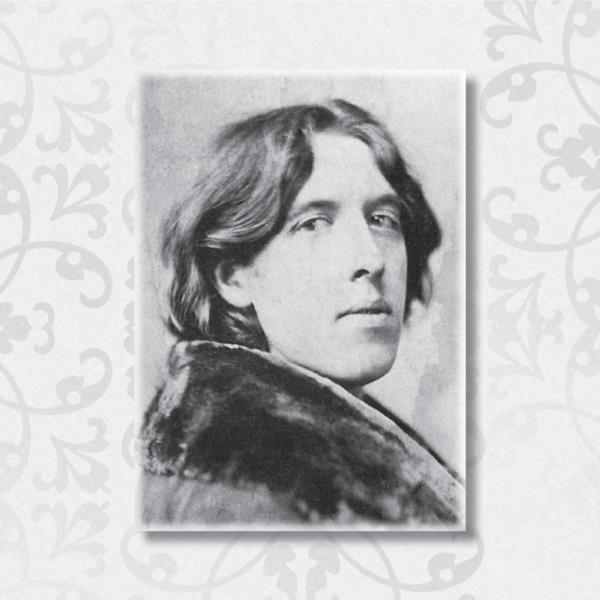
We are complex. Life is simple, and the simple thing is the right thing. Letter from prison [April 1, 1897] Lifes aim, if it has one, is simply to be always looking for temptations. There are not nearly enough. I sometimes pass a whole day without coming across a single one. Lord Illingworth,
Next pageFont size:
Interval:
Bookmark:
Similar books «The Wit and Wisdom of Oscar Wilde»
Look at similar books to The Wit and Wisdom of Oscar Wilde. We have selected literature similar in name and meaning in the hope of providing readers with more options to find new, interesting, not yet read works.
Discussion, reviews of the book The Wit and Wisdom of Oscar Wilde and just readers' own opinions. Leave your comments, write what you think about the work, its meaning or the main characters. Specify what exactly you liked and what you didn't like, and why you think so.

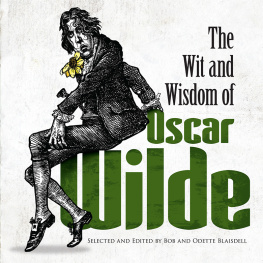
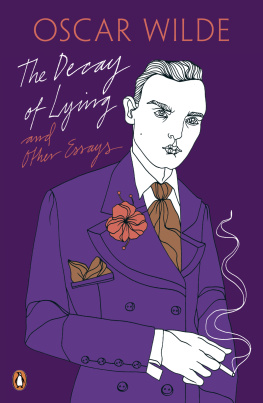
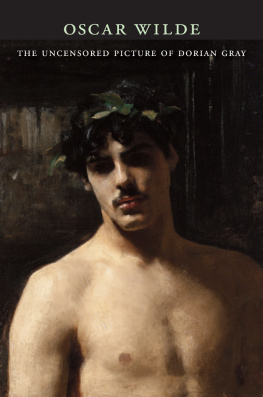
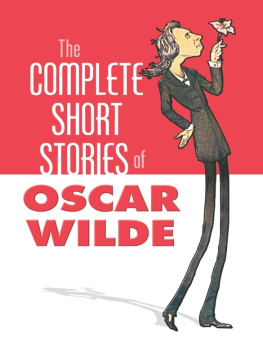
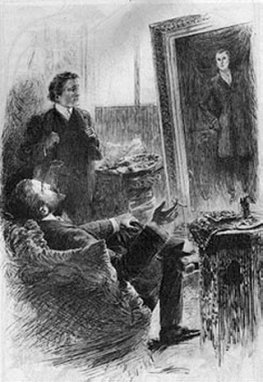

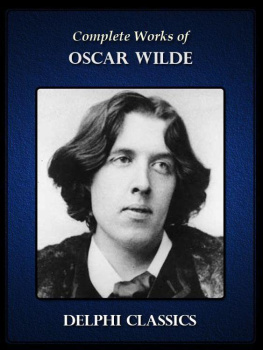
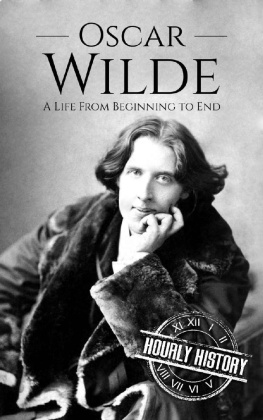

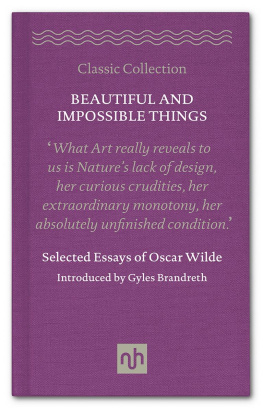
![Wilde Oscar - The secret life of Oscar Wilde: [an intimate biography]](/uploads/posts/book/228457/thumbs/wilde-oscar-the-secret-life-of-oscar-wilde-an.jpg)
